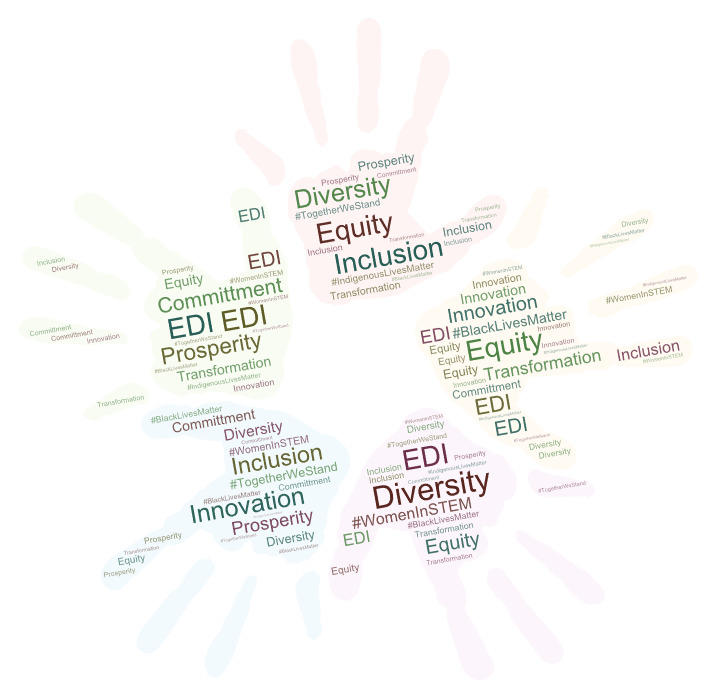

UC-HAL's Equity, Diversion and Inclusion Policy
We place considerable effort on the recruitment and retention of our personnel, with a strong track record of undergraduate student recruitment via summer internships, leading to subsequent graduate student candidates. This has fostered group coherence, consistency in personnel, and a highly productive team environment with strong interpersonal connections and trust among team members. This strategy has attracted a higher percentage of female and diverse groups onto our team; more than 50% of my current team is comprised of top female scientists and engineers.
As a diverse group, we condemn all forms of prejudice and racism. We strive to be our authentic selves in all aspects of our collective and individual work, and in our personal lives. We stand in solidarity against societal social injustice, and pledge to do our part to be a part of the solution - not the problem. We endeavour to be leaders that will lead by example, calling out and exposing both explicit and implicit biases. As leaders in our field, we recognize and advocate for the economic prosperity and innovation that Equity, Diversion and Inclusion (EDI) bring to academia, industry and government.
UC-HAL represents and practices the core values of equity, diversity and inclusion; supporting talent development among all four designated groups in support of NSERC’s Dimensions Charter promoting EDI in post-secondary education.

Our Truth & Reconciliation Journey
After reviewing Wong et al. (2020) Towards Reconciliation: 10 Calls to Action for the Natural Sciences, UC-HAL team members brain stormed actionable items we could incorporate into OUR science and engineering practice that were meaningful to us and in line with the TRCC recommendations. Here is a summary of our commitment to TRC, as a lab and team of practicing natural scientists and engineers:
1. Include land acknowledgements within our theses, papers, and talks;
2. Provide maps that include treaty and/or first nations community boundaries and outlines, acknowledging their place within the context of our work (https://open.canada.ca/data/en/dataset/522b07b9-78e2-4819-b736-ad9208eb1067); and
3. Draft a plain language, 1-page summary (more visuals than text) that describes your research plan in the context of First Nations values and concerns as part of ones thesis/research proposal. The intent is that this can form “newsletter” content that could then be disseminated to First Nations communities impacted by our labs work.
Contact Us
If you are interested in working with our team, then please contact Trish Stadnyk about upcoming opportunities. Any available openings will be posted here.
Tricia.Stadnyk<at>ucalgary.ca
Openings: Research Personnel
May 2023: PhD or PDS/RA with expertise in tracer-aided models and modelling, multi-objective optimization and model calibration
CLUSTER HIRE: UC-HAL is looking for expertise in computational hydrology, machine learning in hydrology and water resource problems, particularly pertaining to climate change assessment and water resources management (regulation). PDS or PhD.
